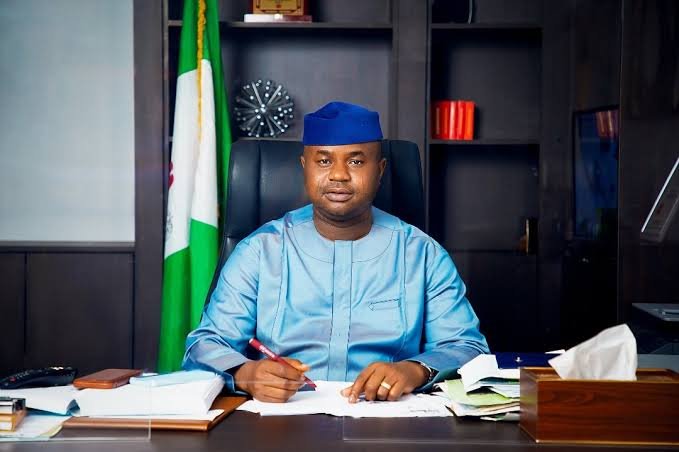Zacch Adedeji has marked two years as head of the country’s tax authority, and he says the results are already speaking for themselves — www.naijnaira.com reports.
Speaking in an interview with BusinessDay, the FIRS chairman explained that the agency has undergone major reforms since President Bola Tinubu came into office.
He pointed to a milestone: for the first time, federal, state, and local governments shared over N2 trillion in monthly allocations, with almost 70 percent of the pool coming from taxes.
According to him, this outcome would not have been possible without Tinubu’s bold decisions, such as scrapping petrol subsidies and unifying Nigeria’s exchange rate system.
“The courage of the president in setting the right fundamentals has made the Federation Account healthier,” Adedeji said.
He explained that the newly consolidated tax law, which takes effect in January, will simplify compliance by merging scattered legislations into a single document.
The reform limits the number of tax types to single digits, preventing businesses from being weighed down by multiple demands from different offices.
“This is the best thing that has happened to Nigeria’s fiscal ecosystem since 1960,” he declared.
Adedeji noted that the law exempts food, education, transportation, and agriculture from VAT, a relief expected to directly benefit more than 80 percent of Nigerians.
He added that small businesses with an annual turnover under N50 million will not pay company income tax.
FIRS itself has been restructured from a tax-type-based system to a customer-centric model that categorizes taxpayers by turnover size.
Large companies with revenue above N5 billion now deal with a single tax office instead of receiving conflicting requests from multiple units.
This, he said, has changed the agency’s culture into one that sees itself as service providers rather than enforcers.
Adedeji confirmed that non-oil revenue has surged, and for the first time in years, oil and gas tax targets were surpassed due to improved security and rising output.
On subsidy removal, he admitted it disrupted lives but likened the pain to “labour before delivery,” insisting the outcome will bring economic stability.
He pointed to the CNG initiative, which has converted millions of vehicles and introduced buses that cut down transport costs.
Foreign airlines that were once owed $7 billion have been paid, while debt servicing dropped from consuming 90 percent of government revenue to around 50 percent in two years.
The country’s tax-to-GDP ratio has risen from 10 percent to 13.5 percent, with a goal to hit 18 percent by 2027.
External reserves now stand at $41 billion, while NELFUND has disbursed about N90 billion to nearly half a million students.
On road infrastructure, he said projects across the six geo-political zones are improving trade and movement of goods.
Federal allocations to states have climbed nearly 70 percent, allowing them to repay N1.85 trillion in debts within 18 months.
Adedeji dismissed speculation about a 5% petrol surcharge, clarifying that although the law exists, it requires a commencement order from the finance minister before implementation.
“Remember, the same president removed VAT on diesel — is it the same man who will now impose fresh burdens on petrol?” he asked.
He also addressed the agency’s new identity as Nigeria Revenue Service, explaining that the old name created the wrong impression that it only collected federal revenue.
Since VAT is largely for states, the new name better reflects its role as the national tax authority.
Looking ahead, Adedeji promised a fairer and more efficient tax administration, urging companies to prioritize voluntary compliance.
Quoting Tinubu, he reminded Nigerians: “I’m not here to tax poverty; I’m here to tax prosperity. My government will tax the fruits of your investments and not the seeds.”
He stressed that growth, not aggressive enforcement, is the key: “If companies do well, we will do well too.”
Article updated 24 hours ago. Content is written and modified by multiple authors.




